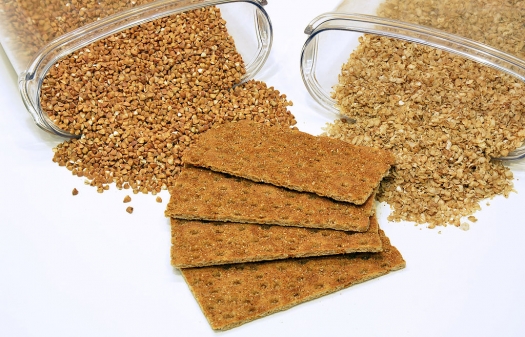BuckwheatAndProducts.jpg

Photo by Andrey Korzun, CC BY-SA 4.0
Buckwheat is one of the most important foods to eat to heal and seal the leaky gut.
After 26 years of practice, I can say with certainty that digestion – which includes nutrient absorption, assimilation and elimination – is one of the cornerstones of vitality and resilience. In Chinese medicine, our digestive function is even referred to as the Center (zhong), and is considered a foundation of addressing any health issue, and creating lifelong health. And many other conditions, especially autoimmune diseases, are deeply connected with digestive imbalances.
In this video (about 4 minutes), I’m going to share with you one of the most valuable lessons I’ve learned about creating and maintaining good digestion for life, in the area of intestinal hyperpermeability, or leaky gut. Included is one of the greatest superfoods in the world, that you’ll want to include in your regular nutrition habits or supplements. If you find it helpful, feel free to share it with your connections.
A Key to Healing a Leaky Gut by Dr. Michael Gaeta
Dr. Michael Gaeta
A Key to Healing a Leaky Gut
Transcript
Hello, and welcome. I’m Dr. Michael Gaeta. I’m an acupuncturist, nutritionist, herbalist, and the founder of the Clinician’s Mastermind Circle. What I wanted to share with you today is one of the most important areas of practice – digestion.
The digestive system is our internal skin, that selectively absorbs what’s important and eliminates what’s not. I want to share with you specifically one of the areas that’s least understood I think in practice, and frequently overlooked. And it’s the area of intestinal hyperpermeability, otherwise known as the leaky gut. It’s frequently overlooked because it can have so many different manifestations. Yet the things that we can do to help our patients improve their digestion and absorption, and to heal and seal, the leaky gut can have dramatic benefits.
First, let’s define what we’re talking about here. Leaky gut is scurvy of the gastrointestinal tract. Scurvy is a collagen, or connective tissue breakdown condition which most people think of as causing red, inflamed, bleeding gums. This breakdown can happen further down in the GI tract, causing a leaky gut.
What then happens is that you have undigested or partially digested proteins from your foods passing through unusually large junctions in your intestinal wall. For example, a tight junction in your intestines might be one to two microns across. By comparison, a red blood cell is five to seven microns wide. In a leaky gut, this can expand to two to three hundred microns, allowing very large particles to enter the blood stream.
So, in a leaky gut, you’re forcing your immune system to complete the job of digestion. How would you know if you have a leaky gut? While there are lab tests which can help, there are also many symptoms of this. One of the most important, are multiple food sensitivities.
For example, I had a patient who had so many food sensitivities that her diet consisted basically of tuna fish, celery and water. That was it. She had dozens of food sensitivities that led her to narrow her diet so drastically. So, multiple food intolerances or food sensitivities is a classic sign of a leaky gut. There are many other symptoms, a few of which include abdominal pain, constipation, diarrhea, joint pain, fever, fatigue, skin rash, allergies, and also a whole range of autoimmune conditions.
So what I want to emphasize today is a very specific approach to helping patients with a leaky gut. The first is to include in your care plan some type of approach, plan or program to heal and seal that leaky gut. And if you’re not sure, it’s safe to do a leaky gut, or heal and seal, program, for all of your patients, no matter what. It can’t hurt, and can do a world of good.
And since leaky gut is a collagen degeneration or weakening disease, one of the best foods we can recommend, which is a wonderful source of the permeability factor, which we call vitamin P, is buckwheat. Buckwheat is one of the most important foods to eat to heal and seal the leaky gut. There are supplements that are made of concentrated buckwheat, for example the Standard Process Cyruta Plus, which is a supplement made of young, organic buckwheat seeds and leaves.
Be sure to include in your diet, and recommend to your patients, buckwheat as a regular greater part of the diet, or supplementation program. Buckwheat is the world’s best source of vitamin P. Vitamin P is for permeability. It is what I call the collagen formation factor, which actually helps to increase collagen formation, increase intestinal resilience. Buckwheat can help correct the nutritional deficiency of this critical vitamin P, which is also found in citrus peel and some other foods that are responsible for collagen formation, collagen production, collagen integrity.
So that’s our clinical tip for today. I trust that it will benefit you, your family and patients in a useful way. I welcome your comments and questions on this subject, and thank you for listening.
Originally published on Dr. Michael Gaeta's website, January 3, 2017. Used with permission.


